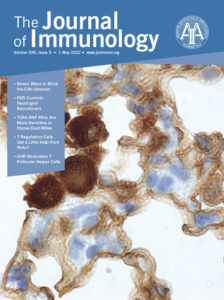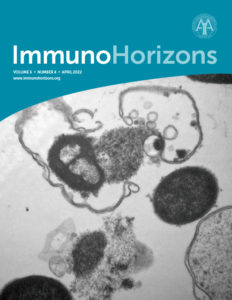Saturday, May 7, 2022
All listings subject to change.
Saturday, May 7, 2022 8:00 AM – 11:30 AM Portland Ballroom 252–253
Major Symposium A
Development of the Immune System
Chairs
- Avinash Bhandoola, NCI, NIH
- Ellen V. Rothenberg, Caltech
Speakers
- Ellen V. Rothenberg, Caltech, Transcriptional and epigenetic regulation of single-cell decisions to enter the T cell developmental pathway
- Kenneth M. Murphy, Washington Univ. Sch. of Med. in St. Louis, Mechanisms of divergence during dendritic cell development
- Albert S. Bendelac, Univ. of Chicago, An ILC2-specific Gata3 enhancer
- Gretchen E. Diehl, Mem. Sloan Kettering Cancer Ctr., Development of microbiota specific T cells
- Gay M. Crooks, Univ. of California, Los Angeles, A dish of T: in vitro models of human T cell development
- Avinash Bhandoola, NCI, NIH, Transcriptional control of thymic epithelial cell development and its impact on T cell function
Saturday, May 7, 2022 8:00 AM – 10:00 AM
Block Symposia
- Engineering Immunoreceptor and Cytokine Signaling for Therapeutics
Oregon Ballroom 201
- From Sharks, Fish, and Frogs to Mammals: Fascinating Immunological Discoveries
Room A107–109
- Mechanisms of Resistance to Therapy
Room B113–116
- Molecular Mechanisms of Cytokine Function
Oregon Ballroom 203
- Regulation of B and T Cells in Autoimmune Diseases
Room B110–112
- Technological Innovations in Immunology I
Room A105–106
- They Come and They Go: A Leukocyte Migration Extravaganza
Room C123–124
Saturday, May 7, 2022 8:00 AM – 11:30 AM Portland Ballroom 254–255
Major Symposium B
Macrophage Biology, Diversity, and Inflammation
Chairs
- Mireia Guerau-de-Arellano, The Ohio State Univ.
- Claudia V. Jakubzick, Geisel Sch. of Med. at Dartmouth
Speakers
- Claudia V. Jakubzick, Geisel Sch. of Med. at Dartmouth, Resident macrophage diversity in the lung
- Kristin L. Patrick, Texas A&M Univ., Defining the contribution of RNA-binding proteins to macrophage activation and innate immune gene expression
- Rafael Czepielewski, Washington Univ. Sch. of Med. in St. Louis, Lymphatics and tertiary lymphoid organs in IBD: Balancing immunity, inflammation and flow
- Jian Zhang, Univ. of Iowa, Regulation of innate immunity by E3 ubiquitin ligases
- Thirumala-Devi Kanneganti, St. Jude Children’s Res. Hosp., Targeting innate immunity and PANoptosis for the treatment of inflammatory and infectious diseases
- Edward B. Thorp, Northwestern Univ., Coordination of macrophage metabolism with tissue repair
Saturday, May 7, 2022 8:00 AM – 10:00 AM Oregon Ballroom 204
International Society of Neuroimmunology (ISNI) Symposium
Neuroimmune Interactions in the CNS and Beyond
Chairs
- Francisco J. Quintana, Brigham and Women’s Hosp. and Harvard Med. Sch.
- Anna V. Molofsky, Univ. of California, San Francisco
Speakers
- Francisco J. Quintana, Brigham and Women’s Hosp. and Harvard Med. Sch., Metabolic control of CNS inflammation and neurodegeneration
- Anna V. Molofsky, Univ. of California, San Francisco, Type I interferon-responsive microglia in brain development
- Gregory Sonnenberg, Weill Cornell Med., Innate lymphoid cell regulation of neuroinflammation
- Marco Colonna, Washington Univ. Sch. of Med. in St. Louis, The lymphopoietic niche at the CNS border
- Carla Rothlin, Yale Univ., TAMpering with memories
Saturday, May 7, 2022 9:00 AM – 10:00 AM Room B117–119
How to Convert Your CV into a Résumé
Chair
- Mary T. Litzinger, AAI
Speaker
- Derek J. Haseltine, Hertz Fndn.
For anyone seeking a job outside of academe, how you present yourself on paper is critical. A well-prepared résumé can make all the difference in securing that interview. This session will focus on the important elements of a professional résumé, the differences between a résumé and the standard academic curriculum vitae, and the information needed to make a good impression. Small breakout sessions for individual consulting will follow. Bring your CV!
Saturday, May 7, 2022 10:00 AM – 10:45 AM Exhibit Hall, Workshop Room 2
Exhibitor Workshop: Sony Biotech., Inc.
Epigenetic Modulation of Leukemia Driver Mutation
Speaker
- Jane Xu, Ph.D., Postdoctoral Fellow, Columbia Stem Cell Initiative, Columbia Univ., NY
A growing understanding of the molecular mechanisms underlying various cancers has contributed significantly to the evolution of cancer diagnostics and treatment. In leukemia, genetic mutations are thought to be the main driver of cellular transformation. However, leukemia cells harboring the same mutation or mutation clusters can actively remodel the epigenome and present divergent responses to ‘targeted’ therapy. Prior work demonstrated the establishment of determinants of clonal fitness within the leukemic epigenome in the absence of epigenetic mutations. It is still unknown how leukemia mutations modulate the epigenome and how this non-somatic influence underpins the functional and therapeutic heterogeneity. Our research focus is on elucidating the interactions between Stag2, the most frequently mutated cohesin member in cancer, and two leukemia driver mutations, Npm1c or Flt3-ITD. We hypothesize that cohesin dysfunction contributes to the establishment of the leukemic epigenome, which is vulnerable to genetic intervention. Determining the mechanistic interaction between the cohesin complex and Npm1c or Flt3-ITD may uncover novel pathophysiologic consequences of epigenetic alterations, and the relationship to therapeutic response divergency.
Saturday, May 7, 2022 10:00 AM – 10:45 AM Exhibit Hall, Workshop Room 3
Exhibitor Workshop: 10x Genomics
Antibody Discovery Using Barcode Enabled Antigen Mapping (BEAM)
Speakers
- Rea Dabelic, Ph.D., Sr. Manager, Market Development, Immunology
- Bryan Briney, Ph.D., Asst. Prof., Dept. of Immunology and Microbiology, Scripps Res.
Humans who have recovered from infectious disease possess a memory B cell pool capable of producing neutralizing antibodies against the cleared pathogenic agent. While these antibodies have critical therapeutic potential, current methods for identification of candidate B cells are prohibitive to rapid development of therapeutics. Learn how the 10x Barcode Enabled Antigen Mapping workflow can greatly enhance and shorten your discovery of B cell candidates, while also generating transcriptomic profiles and natively paired heavy and light chain full-length B-cell receptor sequences at single cell resolution.
Saturday, May 7, 2022 10:15 AM – 12:15 PM Room A105–106
ARPA-H: What You Need to Know and How It May Impact Federal Funding of Biomedical Research
Sponsored by the AAI Committee on Public Affairs
Chair
- Peter E. Jensen, Univ. of Utah Sch. of Med., AAI Committee on Public Affairs Chair
Speakers
- Tara A. Schwetz, Acting Principal Deputy Director, NIH, ARPA-H: a new paradigm for propelling use-driven, high-impact biomedical and health research
- Amy Jenkins, Program Manager, DARPA, Insights and advice from a DARPA program manager
- Amanda M. Jamieson, Associate Professor, Brown Univ., My experience as a DARPA performer
Last year, President Joe Biden formally proposed creating a new entity called the Advanced Research Projects Agency for Health (ARPA-H). ARPA-H, which is to be modeled after the Defense Advanced Research Projects Agency (DARPA), would support high-risk, high-reward research and, according to a concept paper developed by the Administration, might initially focus on “mak[ing] pivotal investments in breakthrough technologies and broadly applicable platforms, capabilities, resources, and solutions that have the potential to transform important areas of medicine and health for the benefit of all patients and that cannot readily be accomplished through traditional research or commercial activity.”
Although President Biden recommended an initial three-year budget of $6.5 billion for ARPA-H, Congress appropriated $1 billion in fiscal year 2022 to launch this new agency. Congress and the White House continue to work toward the development of legislation that will further determine how ARPA-H will operate, including how it will establish research priorities and whether it will be part of NIH or an independent entity with the Department of Health and Human Services.
This session will feature a distinguished panel of experts who will explain the vision for this new agency. They will also address critical issues about how it might operate, including how immunologists could apply for and use ARPA-H funds, and whether federal investment in ARPA-H could adversely affect funding for the regular NIH budget, including its investigator-initiated basic research portfolio. The formal presentations will be followed by an ample question-and-answer period.
Saturday, May 7, 2022 10:15 AM – 12:15 PM
Block Symposia
- Autoimmunity
Oregon Ballroom 203
- Molecular and Cellular Control of Humoral Immunity
Room C123–124
- Pathogenesis of SARS-CoV-2 Infection
Oregon Ballroom 202
- Tissue Immunity at Barrier Sites
Oregon Ballroom 204
- Tumor Immunotherapy (TI2)
Oregon Ballroom 201
Saturday, May 7, 2022 10:15 AM – 12:15 PM Room A107–109
Chinese Society of Immunology, Taiwan (CSIT) Symposium
Metabolic Instruction of Immunity
Chairs
- Huey-Kang Sytwu, Nat. Inst. of Infectious Diseases and Vaccinology, Nat. Hlth. Res. Inst., Taiwan
- Huang-Yu Yang, Chang Gung Mem. Hosp., Taiwan
Speakers
- Huang-Yu Yang, Chang Gung Mem. Hosp., Taiwan, Metabolic immunomodulation for autoimmune disease
- Chia-Lin Hsu, Nat. Yang Ming Chiao Tung Univ., Linkou Branch, Taiwan, Multiomic analyses reveal the central role of the pentose phosphate pathway in resident thymic macrophages to cope with efferocytosis-associated stress
- Huai-Chia Chuang, Immunology Res. Ctr., Nat. Hlth. Res. Inst., Taiwan, BPI overexpression suppresses Treg differentiation and induces exosome-mediated inflammation in systemic lupus erythematosus
- Chao-Yuan Hsu, Nat. Defense Med. Ctr., Taiwan, T cell-restricted c-Maf SUMOylation deficiency shapes gut microbiota-modulated metabolomic profiling to ameliorate colitis
Saturday, May 7, 2022 11:00 AM – 1:00 PM Room B117–119
Immunology Teaching Interest Group: Enhancing Your Immunology Teaching
Sponsored by the AAI Education Committee
Chairs
- William H. Carr, Medgar Evers Col., CUNY
- Michelle Snyder, Towson Univ.
Speakers
- Sarah B. Redmond, Radford Univ., To lab or not to lab, that is the question
- John K. Cusick, California Northstate Univ., Improving the effectiveness of combining PowerPoint presentations and review games
- Keri Csencsits-Smith, Saba Univ. Sch. of Med., Dutch Caribbean, The zombie pirate invasion: an introduction to immunology concepts
- Tatiana Barichello, Univ. of Texas Hlth. Sci. Ctr., Houston, Problem-Based Learning (PBL) approach as a tool to teach immunology
Breakout Session Leaders
- Louis B. Justement, Univ. of Alabama at Birmingham, Rebekah T. Taylor, Frostburg State Univ., and Sumali Pandey, Minnesota State Univ., Moorhead, Incorporating immunology into the undergraduate curriculum to promote interdisciplinary science education
- Kara R. Lukin, Western Governors Univ., Univ. of Colorado, Leveraging Flipgrid to drive social belonging and more durable learning in immunology courses
- Holly Turula, Western Michigan Univ. Homer Stryker MD Sch. of Med., and Timothy Bauler, Western Michigan Univ. Homer Stryker MD Sch. of Med., Using team-based learning to solidify immunology concepts
Are you looking for new ideas to enliven and improve your teaching? If so, please join us for this special interest group, which will focus on strategies that instructors can use to successfully convey immunology concepts to students at the undergraduate and graduate level. The session will explore teaching techniques through talks and structured breakout discussion groups. Current educators, new faculty, and trainees with an interest in teaching are welcome.
Saturday, May 7, 2022 11:15 AM – 12:00 PM Exhibit Hall, Workshop Room 1
Exhibitor Workshop: Adaptive Biotech.
Research Applications Utilizing the immunoSEQ® Assay in Vaccine and Viral Infection Studies
Speakers
- Kaylani Merrill, Ph.D., Res. Account Manager, Introduction of immunoSEQ® Technology
- Richard J. DiPaolo, Ph.D., Prof. and Interim Chair, Department of Molecular Microbiology & Immunology, St Louis Univ. School of Med., Research Applications Utilizing the immunoSEQ® Assay in Vaccine and Viral Infection Studies
Dr. DiPaolo will be discussing data generated in his lab that used the immunoSEQ Assay to identify and track vaccine-specific and virus-specific T cells circulating in blood longitudinally, to distinguish T cell receptors (TCRs) specific for Zika and Dengue viruses, and to determine the impact of immunotherapy on tumor-infiltrating T cells. He will also discuss bioinformatic analyses of TCR sequences to develop diagnostics for viral infections.
Saturday, May 7, 2022 11:15 AM – 12:00 PM Exhibit Hall, Workshop Room 2
Exhibitor Workshop: Cell Signaling Technol.
Single-Cell Signaling: How to Capture Immune Cell Signaling Patterns with Intracellular, Phospho Flow Cytometry
Speaker
- Robert MacDonald, Ph.D., Scientist, Flow Cytometry Grp.
To characterize the activation of immune cells in response to therapy, measurement of intracellular signaling using phospho-specific antibodies combined with immune phenotyping using surface markers is ideal. Owing to the unique capability of flow cytometry to measure events at a single-cell level, “Phospho Flow” allows for the identification of rare signaling events in response to immune cell modulation. However, combining extracellular and intracellular antibodies in a flow protocol can present technical challenges. This workshop will discuss how small protocol changes can impact results and provide tools enabling multiplexed experimental design combining phenotypic markers with phospho-specific intracellular targets including the use of fix and perm kits.
Saturday, May 7, 2022 11:15 AM – 12:00 PM Exhibit Hall, Workshop Room 3
Exhibitor Workshop: Miltenyi Biotec
Improve your CAR T Cell Research
Speaker
- Marcello Stein Ph.D., Marketing Manager, Translational Immunology Res.
Join us at our workshop where we will highlight our latest product solutions and strategies for a successful research-scale CAR T cell workflow to efficiently move your research forward. Learn how to: isolate fully functional T cells directly from whole blood and blood products, boost lentiviral T cell transduction efficiency, easily activate and expand your T cells without hassle, and advance your IPC and QC with our latest flow analysis solutions.
Saturday, May 7, 2022 12:00 PM – 2:15 PM Portland Ballroom 251
Careers Roundtables and Speed Networking Session
Sponsored by the AAI Minority Affairs Committee
Chair
- Tonya J. Webb, Univ. of Maryland Sch. of Med., AAI Minority Affairs Committee Chair
Networking skills have never been more crucial to ensure success for early/mid-career scientists, including those traditionally under-represented in biomedical research. At the session, take advantage of the opportunity to meet in small-group format with accomplished, senior immunologists and others to hear how they have handled the career challenges you now face and learn what they believe will work for you today. Then, practice networking in a relaxed environment offering a structured networking exercise and personalized feedback on communicating your scientific interests/objectives most effectively. Scientists and trainees of all backgrounds are encouraged to attend!
Registration Fee: $30 (Includes lunch)
Discussion Topics and Table Leaders
Grad Student: Finding a Mentor, Setting Sights on Postdoc Training
- Curtis J. Henry, Emory Univ. Sch. of Med.
- Gianna E. Hammer, Duke Univ. Sch. of Med.
- Beth Jirón Tamburini, Univ. of Colorado Sch. of Med.
Navigating Challenges Unique to International Graduate Students NEW!
- Craig Maynard, Univ. of Alabama at Birmingham
- Amal Amer, The Ohio State Univ.
Postdoc: Finding a Mentor, Setting Sights on a Faculty Position
- Claudia Jakubzick, Dartmouth Col.
- De’Broski R. Herbert, Univ. of Pennsylvania Sch. of Vet. Med.
- C. Henrique Serezani, Vanderbilt Univ. Med. Ctr.
- Charlotte M. Vines, Univ. of Texas, El Paso
- Jose Conejo-Garcia, Moffitt Cancer Ctr.
Junior Faculty: Preparing for Promotion and Tenure
- Harlan P. Jones, Univ. of North Texas
- Robert J. Binder, Univ. of Pittsburgh
Maintaining Research Productivity at a Primarily Undergraduate Teaching institution NEW!
- Michael M. Opata, Appalachian State Univ.
Academia or Industry: How to Decide (or Switch Sides)
- Isharat Yusuf, Gossamer Bio
- Jonathan Deane, Kumquat Biosci.
- Louis Gonzalez, Shattuck Labs
- Aliyah Weinstein, Taconic Biosci.
- Kiyomi Komori, Arena/Pfizer
Government Agency Careers
- Marta Catalfamo, Georgetown Univ.
- Swinburne Augustine, Envrn. Protection Agcy.
Non-Bench Research Science Careers: Entrepreneurship
- Tonya J. Webb, Univ. of Maryland Sch. of Med; WebbCures, IMMUNE 3D, and Screen Therapeut.
- Eduardo Davila, Univ. of Colorado Sch. of Med.
Non-Bench Research Science Careers: Nonprofits/Foundations
- Derek Haseltine, Hertz Fndn.
- Thandi Onami, Gates Fndn.
Non-Bench Research Science Careers: Research Technology
- Robert Balderas, BD Biosci.
Non-Bench Research Science Careers: Science Policy
- Lauren Gross, AAI
- Yvette Seger, FASEB
Non-Bench Research Science Careers: Scientific Publishing
- Nicole Beauchamp, AAI
Saturday, May 7, 2022 12:30 PM – 2:30 PM Room A107–109
Immunomodulation and Immunotherapy: Lessons to Improve Health
Sponsored by the AAI Veterinary Immunology Committee
Chairs
- Janice C. Telfer, Univ. of Massachusetts, Amherst, AAI Veterinary Immunology Committee Chair
- Renukaradhya J. Gourapura, The Ohio State Univ. Col. of Food Agri. & Envrn. Sci.
Speakers
- Jacques Robert, Univ. of Rochester Med. Ctr., Xenopus as nonmammalian experimental organism for investigating host interactions with non-TB mycobacteria
- Alix K. Berglund, North Carolina State Univ. Col. of Vet. Med., Immunomodulation by mesenchymal stem cells: mechanisms, clinical implications, and future directions
- Brian P. Dolan, Oregon State Univ., Modulation of the immune system in wild animals
- Renukaradhya J. Gourapura, The Ohio State Univ. Col. of Food Agri. & Envrn. Sci., Nature of vaccine delivery vehicle determines the Th1- and Th2-based immunity to intranasal influenza vaccine in a pig model
Approaches to improve health via immunomodulation or immunotherapy cross into both human and veterinary medicine. Non-murine animal models, advances in vaccine formulations, and therapeutic modalities in domestic animals have translational applications for improving human health. This symposium will highlight comparative immunologic models, the clinical implications of using stem cells as immunomodulators, insight on novel therapeutic approaches for animal health, and immunomodulation approaches to decrease infectious disease. Collectively, the talks presented in this symposium will showcase the translational cohesion between veterinary and human health to support the current “One Health” research concept.
Saturday, May 7, 2022 12:30 PM – 2:30 PM
Block Symposia
- Immunity to Microbial, Parasitic, and Fungal Infections II
Room B113–116
- Immunity to SARS-CoV-2
Oregon Ballroom 201
- Immunoregulation—Infection and Immunity
Room A105–106
- The Ins and Outs of Airway Inflammation
Oregon Ballroom 202
Saturday, May 7, 2022 12:30 PM – 2:30 PM Room C123–124
German Society for Immunology (DGfI) Symposium
Antigen-Specific T Cell Responses to SARS-CoV-2
Chairs
- Martina Sester, Universität des Saarlandes, Germany
- Carsten Watzl, Leibniz Institut für Arbeitsforschung an der TU Dortmund, Germany
Speakers
- Claudia Giesecke-Thiel, Max Planck Inst. for Molecular Genetics, Germany, CD4+ T cell responses and the role of pre-existing immunity for COVID-19 and SARS-CoV-2 infection
- Gabriela Rios Martini, Universitätsklinikum Schleswig-Holstein, Germany, The role of pre-existing immunity and age in CD4+ T cell responses to SARS-CoV-2 infection and vaccination
- Martina Sester, Universität des Saarlandes, Germany, T cell responses to SARS-CoV-2 infection and vaccination
- Maike Hofmann, Universitätsklinikum Freiburg, Germany, CD8+ T cell responses to SARS-CoV-2 infection
Saturday, May 7, 2022 12:30 PM – 2:30 PM Oregon Ballroom 204
Society for Immunotherapy of Cancer (SITC) Symposium
Understanding the Tumor-Reactive T Cell Repertoire in Cancer Patients
Chairs
- Andrew D. Weinberg, Earle A. Chiles Res. Inst., Providence Portland Med. Ctr.
- Paul F. Robbins, NCI, NIH
Speakers
- Andrew D. Weinberg, Earle A. Chiles Res. Inst., Providence Portland Med. Ctr., Identifying tumor-reactive CD8+ TIL in patients with solid malignancies: clinical implications
- Kathryn E. Yost, Whitehead Inst., Clonal dynamics of tumor-infiltrating T cells in response to checkpoint blockade immunotherapy
- Alena Gros, Vall d'Hebron Inst. of Oncology, Spain, Harnessing the personalized antitumor T cell response to treat cancer
- Paul F. Robbins, NCI, NIH, Isolating and characterizing neo-antigen reactive T cells in patients with solid tumors
Saturday, May 7, 2022 12:30 PM – 1:15 PM Exhibit Hall, Workshop Room 2
Exhibitor Workshop: Luminex, A DiaSorin Company
How the Amnis® ImageStream®X Imaging Flow Cytometer Advances Research in Immunology
Speaker
- Brian Hall, Product Manager, Imaging Flow Cytometry
The ImageStream® System has enabled strategic advances in cell analysis research and has supported the development of novel experiments to better understand immune cell function. From characterizing CAR T cells to measuring NK cell mechanisms, the field of immunology has advanced through diligent research supported by technologies that enable scientists to make new discoveries. Here, we describe some of the applications that have been enhanced by imaging flow cytometry, including T cell activation as measured by NF-κB translocation, characterization of CAR T cell binding, and how new software like Amnis® AI can use computer learning algorithms to simplify immune synapse formation analysis. For Research Use Only. Not for use in diagnostic procedures.
Saturday, May 7, 2022 12:30 PM – 1:15 PM Exhibit Hall, Workshop Room 3
Exhibitor Workshop: Miltenyi Biotec
Ultra-High Content Imaging Helps to Identify CAR Target Candidates Against Pancreatic Adenocarcinoma
Speaker
- Daniel Schäfer Ph.D., Team Coordinator Cellular Immunotherapy
Chimeric antigen receptor (CAR) T cells have become a new pillar of cancer therapy. This therapy has been applied successfully in the treatment of some cancers of the bone marrow and blood. However, the remarkable success of CAR T cell therapies in liquid tumors has not yet been translated to solid malignancies. Using our innovative MICS technology, we identified four CAR targets among 371 antigens tested. This in turn resulted in the generation of 32 CARs whose potential was tested in vitro and in vivo. Efficacy in pre-clinical studies ranged from stabilized disease to complete tumor eradication.
Saturday, May 7, 2022 1:00 PM – 2:30 PM Room B110–112
AAI Business Meeting and Awards Presentation
Chair
- M. Michele Hogan, CEO, AAI
AAI reports on the “state of the association” to its members at every AAI annual meeting. Members will hear from the CEO, the Secretary-Treasurer on the financial standing of AAI, the Editors-in-Chief of The Journal of Immunology (The JI) and ImmunoHorizons (IH) on the status of AAI journals, and the Chair of the Committee on Public Affairs on important public policy issues, and other items of interest for the membership. Special AAI career awards will also be presented during this session.
Saturday, May 7, 2022 1:00 PM – 2:30 PM Room B110–112
AAI Distinguished Service Award Presentations
Chair
- M. Michele Hogan, AAI
Award Recipients
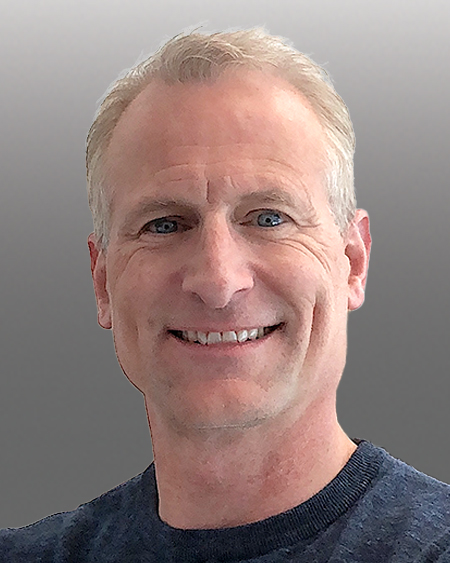
Ross Kedl
Univ. of Colorado Sch. of Med.
For outstanding service as Chair and Member of the AAI Committee on Public Affairs, 2015-2021
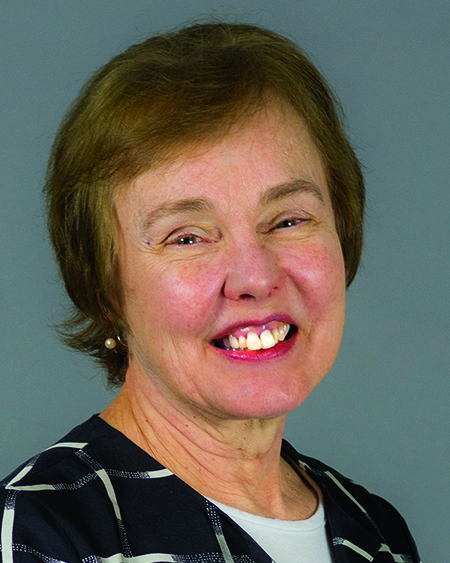
Edith M. Lord
Univ. of Rochester Sch. of Med. and Dent.
For exceptional service as AAI Secretary-Treasurer, 2015-2021
AAI CEO M. Michele Hogan will introduce the awardees and present the awards during the AAI Business Meeting.
The AAI Distinguished Service Awards recognize individuals for outstanding service to AAI and the immunology community.
Saturday, May 7, 2022 1:00 PM Room B110–112
Lustgarten-Thermo Fisher Scientific Memorial Award
Established to honor the memory of AAI Member Dr. Joseph Lustgarten, this award is intended to advance the career of a mid-career scientist who attends the AAI annual meeting and presents an outstanding abstract specifically in the area of immune regulation. This award is generously supported by Thermo Fisher Scientific.
Award Recipient
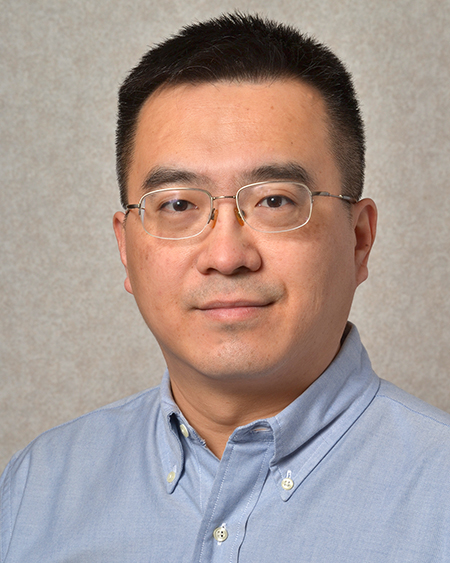
Haitao Wen, Ph.D.
Associate Professor
The Ohio State Univ.
AAI CEO M. Michele Hogan will acknowledge the awardee during the AAI Business Meeting.
Saturday, May 7, 2022 1:00 PM Room B110–112
Pfizer-Showell Travel Award
This award recognizes the professional promise of an early career investigator (assistant professor or equivalent) by assisting the award recipient with registration for the AAI annual meeting to present their research. This award is supported through an endowment from Henry J. Showell and Pfizer, Inc.
Award Recipient
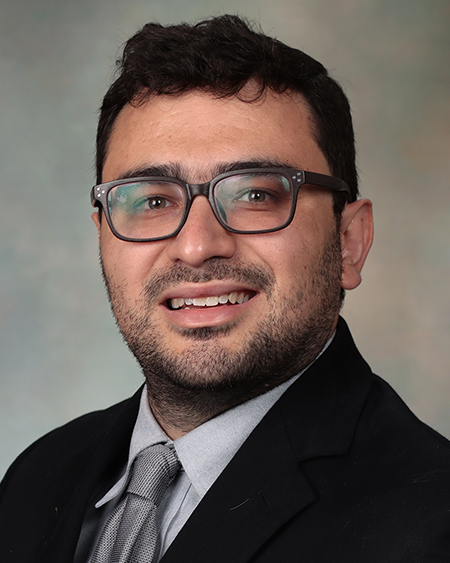
Henrique Borges da Silva, Ph.D.
Assistant Professor
Mayo Clin. Arizona
AAI CEO M. Michele Hogan will acknowledge the awardee during the AAI Business Meeting.
Saturday, May 7, 2022 1:00 PM Room B110–112
Lefrançois-BioLegend Memorial Award
Established to honor the memory of AAI Member Dr. Leo Lefrançois, this award is intended to advance the career of a trainee who attends the AAI annual meeting and presents an outstanding abstract specifically in the area of mucosal immunology. This award is generously supported by BioLegend and donations from friends and colleagues of Dr. Lefrançois.
Award Recipient
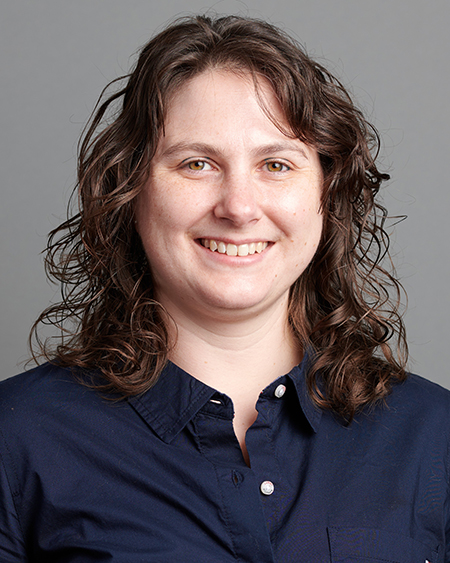
Emily M. Eshleman, Ph.D.
Postdoctoral Fellow
Cincinnati Children's Hosp. Med. Ctr.
AAI CEO M. Michele Hogan will acknowledge the awardee during the AAI Business Meeting.
Saturday, May 7, 2022 1:00 PM Room B110–112
Chambers-Thermo Fisher Scientific Memorial Award
Established to honor the memory of AAI Member Dr. Cynthia Chambers, this award is intended to advance the career of an early career scientist who attends the AAI annual meeting and presents an outstanding abstract specifically in the area of cancer biology. This award is generously supported by Thermo Fisher Scientific.
Award Recipient
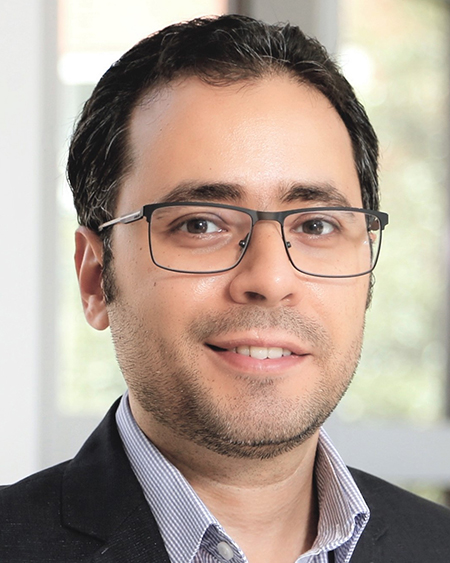
Hazem E. Ghoneim, Ph.D.
Assistant Professor
The Ohio State Univ. Col. of Med.
AAI CEO M. Michele Hogan will acknowledge the awardee during the AAI Business Meeting.
Saturday, May 7, 2022 1:00 PM Room B110–112
AAI-Thermo Fisher Trainee Achievement Awards
This award recognizes up to six promising trainees in the field of immunology. Selection is based on career promise and presentation of an outstanding first-author abstract selected for a Block Symposium. This award is generously supported by Thermo Fisher Scientific.
Award Recipients
- Heather L. Caslin, Ph.D., Postdoctoral Fellow, Vanderbilt Univ.
- Jing Li, Ph.D., Postdoctoral Fellow, Stanford Univ.
- Jorge F. Ortiz-Carpena, Graduate Student, Univ. of Pennsylvania
- Nataliya Prokhnevska, Graduate Student, Emory Univ.
- Daniel F. Zegarra Ruiz, Ph.D., Postdoctoral Fellow, Mem. Sloan Kettering Cancer Ctr.
- Zinan Zhang, Graduate Student, Harvard Med. Sch.
AAI CEO M. Michele Hogan will acknowledge the awardees during the AAI Business Meeting.
Saturday, May 7, 2022 1:45 PM – 2:30 PM Exhibit Hall, Workshop Room 1
Exhibitor Workshop: BioLegend
Inactivation of SARS-COV2 for Analysis of Samples Using LEGENDplex Multiple Assays and Flow Cytometry
Speaker
- Theodore G Liou, M.D., Prof. of Internal Med., Univ. of Utah
Severe acute respiratory syndrome coronavirus 2 (SARS-CoV-2) is a life-threatening pathogen that requires extreme caution when handling samples with active viral particles. The CDC recommends that processing of samples containing SARS-CoV-2 should be performed in biosafety level 3 laboratories. This restricts many research groups without access to biosafety 3 laboratories from safely analyzing samples. Herein, we present a strategy for rendering SARS-CoV-2 inactive in samples for bead-based immunoassays (LEGENDplex analysis) and flow cytometry, which allows sample characterization at reduced biosafety levels. The strategy may facilitate the analysis of samples potentially containing other viral pathogens after sufficient additional safety testing.
Theodore G Liou collaborates with Biolegend and received reagents for the performance of this work. Dr. Liou is a Tenured Faculty Member of the University of Utah and is the Director of the Adult CF Care Center and member of the Center for Quantitative Biology at the U of Utah. He is supported by grant funding from the NHLBI (R01 HL125520), the US CF Foundation (CC132-16AD, LIOU14Y0, LIOU14P0), the Margolis Family Foundation of Utah and the Claudia Ruth Goodrich Stevens Endowment Fund. Dr. Liou and the CF Center at the University of Utah received funding within the last three years to perform sponsored clinical trials focused on CF from Abbvie, Aridis, Armata, BiomX, Calithera Biosciences, Corbus Pharmaceuticals, Gilead Sciences, Laurent Pharmaceuticals, Nivalis Therapeutics, Novartis, Proteostasis, Savara Pharmaceuticals, Translate Bio and Vertex Pharmaceuticals. None of the commercial research sponsors were involved with the current presentation. Dr. Liou is a member of the Clinical Research Award Committee at the CF Foundation and is a member of the Steering Committee for the CF Foundation’s Therapeutic Development Network.
Saturday, May 7, 2022 1:45 PM – 2:30 PM Exhibit Hall, Workshop Room 2
Exhibitor Workshop: Thermo Fisher Scientific
Leveraging Novel Fluorophore Technologies to Enable Flexible and Higher Dimensional Immune Profiling by Spectral Flow Cytometry
Speaker
- Seddon Y. Thomas, Ph.D., Staff Scientist, Cell Biology
High dimensional full spectrum flow cytometry grants unprecedented access to previously unattainable parameters in cellular biology. The development of fluorescent labels engineered with targeted excitation and emission spectra using the Invitrogen™ Phiton™ DNA platform has expanded the complexity and resolution of biological questions that can be asked in a single panel. In this tutorial, we take a deep dive into a broadly focused human immune panel with over 30 parameters that is designed to enable biologists to expand plex while preserving spectral space for specific markers of choice.
Saturday, May 7, 2022 1:45 PM – 2:30 PM Exhibit Hall, Workshop Room 3
Exhibitor Workshop: Studylog Animal Study Workflow Software
Best Data and Conduct Practices for Improving Animal Study Reproducibility
Speaker
- Eric Ibsen, CEO
Results from in vivo animal experiments are notoriously difficult to reproduce. This difficulty in generating results with a high level of integrity, detail, and reproducibility on a consistent basis underscores the need to critically examine, improve, and standardize processes for animal study conduct. Researchers must understand the factors contributing to poor data quality and irreproducible study results and implement effective “best practices” for data integrity, study conduct, and scientific rigor. Researchers attending this presentation will gain an understanding of some success factors, practical approaches, and study workflow software approaches to make animal studies more reproducible.
Saturday, May 7, 2022 2:30 PM – 3:45 PM Exhibit Hall
Poster Session
- CD4+ T Cell Regulation and Responses: Molecular Mechanisms
- Cytokine and Chemokine Control of Cellular Immunity
- Cytokine and Regulatory Cell Control of Autoimmunity
- Food Allergy, Atopic Dermatitis, and Mast Cells, Oh My!
- HSCs and Myelopoiesis
- Immunoregulation—General
- Immunoregulation—Mechanism of Action
- Immunity to Microbial, Parasitic, and Fungal Infections I
- Innate Immune Response to Infection
- Innate Immune Responses and Host Defense: Cellular Mechanisms I
- Innate Immune Sensing and Signaling
- Innate Lymphocytes and Innate-Like T Cells in Cancer
- Macrophages, Myeloid, and Dendritic Cells in Tumor Immunity and Immunotherapy
- Memory T Cell Differentiation, Function, and Maintenance
- Molecular Mechanisms of Cytokine Function
- Molecular Regulation of Innate and Cytotoxic Lymphocyte Responses
- Neonatal and Fetal Mucosal Immunity
- Pulmonary, Vasculature, and Skin Immunity
- Therapeutic Approaches to Autoimmunity and Other Diseases
- Tissue Resident Memory T Cells (Trm) in Cancer
- Vaccination and Immunotherapy
- Vaccination and Immunotherapy Against COVID-19
- Vaccines and Immunobiologics Against Viruses
Saturday, May 7, 2022 2:30 PM – 3:45 PM Exhibit Hall
Saturday in the AAI Booth
- AAI President Gary A. Koretzky and the Membership Committee
- ImmunoHorizons Editor-in-Chief Mark H. Kaplan
- Public Policy Fellows
Saturday, May 7, 2022 3:45 PM – 5:45 PM Room A107–109
Society for Natural Immunity (SNI) Symposium
NK Cells in Infection—New Developments
Chairs
- Cynthia E. Dunbar, NHLBI, NIH
- Aimee M. Beaulieu, Rutgers New Jersey Med. Sch.
Speakers
- Cynthia E. Dunbar, NHLBI, NIH, NK cell dynamics during CMV infection in primates
- Quirin Hammer, Karolinska Inst., Sweden, Missing self responses of NK cells against SARS-CoV-2
- Aimee M. Beaulieu, Rutgers New Jersey Med. Sch., Epigenetic regulation of NK cell development and function in mice
- Mario Witkowski, Charité – Universitätsmedizin Berlin, Germany, Regulation of NK cell responses during COVID-19
Saturday, May 7, 2022 3:45 PM – 5:45 PM
Block Symposia
- Autoantigen Identification, Autoantigen Specificity, and Central Tolerance
Room B110–112
- B and T Cell Development
Room B117–119
- Molecular, Metabolic, and Epigenetic Regulation of Innate Immunity and Inflammation
Room A105–106
- Overcoming Current Roadblocks in CAR T Cell Therapy
Oregon Ballroom 201
Saturday, May 7, 2022 4:30 PM – 5:30 PM Portland Ballroom 252–255
AAI-BD Biosciences Investigator Award Presentation and Lecture
Generously supported by BD Biosciences
Chair
- Gary A. Koretzky, Cornell Univ. and Weill Cornell Med., AAI President (2021–2022)
Award Recipient
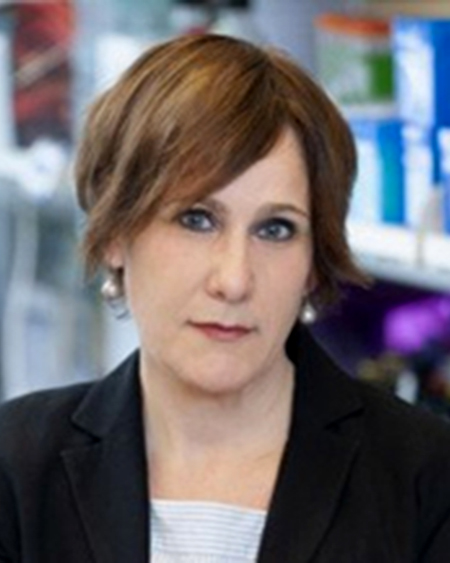
Andrea Schietinger
Mem. Sloan Kettering Cancer Ctr.
T cell differentiation and fate choice in cancer and autoimmunity
AAI President Gary A. Koretzky and Robert Balderas, Vice President of Biological Sci., BD Biosciences, will introduce the awardee and present the award immediately prior to Dr. Schietinger’s lecture.
The AAI-BD Biosciences Investigator Award recognizes an early-career investigator who has made outstanding contributions to the field of immunology.
Saturday, May 7, 2022 6:00 PM – 6:45 PM Portland Ballroom 252–255
Distinguished Lecture—Robert D. Schreiber
Chair
- Cathryn R. Nagler, Univ. of Chicago, AAI Program Committee Chair
Speaker
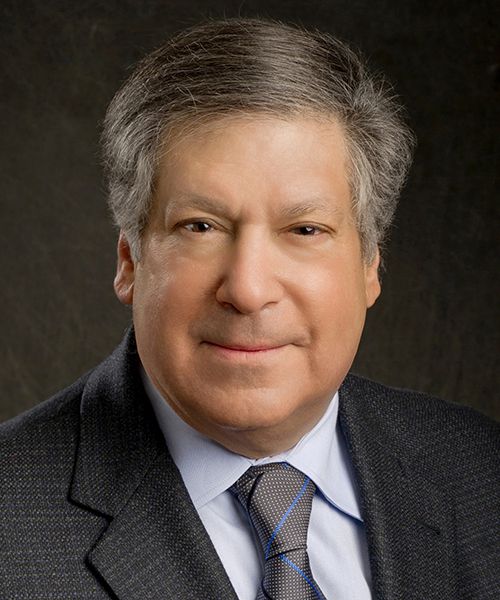
Robert D. Schreiber
Washington Univ. Sch. of Med. in St. Louis
Neoantigens as probes and targets of immune responses to cancer
Saturday, May 7, 2022 7:00 PM – 8:30 PM
AAI Minority Affairs Committee (MAC) Social Hour
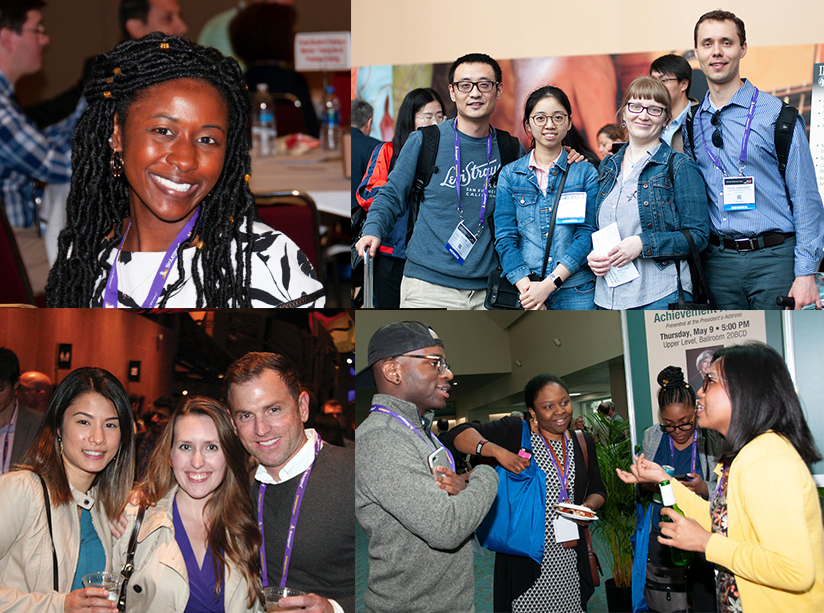
One of the most important and meaningful aspects of the annual meeting is connection! The AAI MAC Social Hour is an evening gathering during which participants in the annual MAC Careers Roundtables session reconvene for relaxed, informal networking. This event brings attendees together to make career-changing connections (and new friends) with peers, mentors, and senior scientists representing the diversity of AAI and the meeting. Soft drinks and hors d'oeuvres will be served.
Badge and invitation required. Invitations will be issued to meeting attendees registered to attend the MAC Careers Roundtables and Speed Networking Session.
Saturday, May 7, 2022 7:00 PM – 9:00 PM Room A105–106
Careers in Biotech: Panel Discussion and Networking
Sponsored by the AAI Education Committee
Chair
- H. Kiyomi Komori, Arena Pharma./Pfizer
Panelists
- Richard Boismenu, Independent Consultant
- Yi Ting Koh, Senior Director, Immunology Discovery, Eli Lilly and Co.
- Joseph Kuo, Research Scientist, Arena Pharma./Pfizer
- Erica L. Stone, Vice President, Oncology, GigaGen
Many opportunities exist in industry for scientists with advanced degrees. There are positions in laboratory research, program management, business development, regulatory affairs, clinical trials oversight, medical liaison, and more. This panel features scientists employed in a variety of positions in industry discussing their career paths and the skills required for success in each. Following the panel discussion, enjoy casual conversation with the speakers and other scientists from industry at a networking reception.


